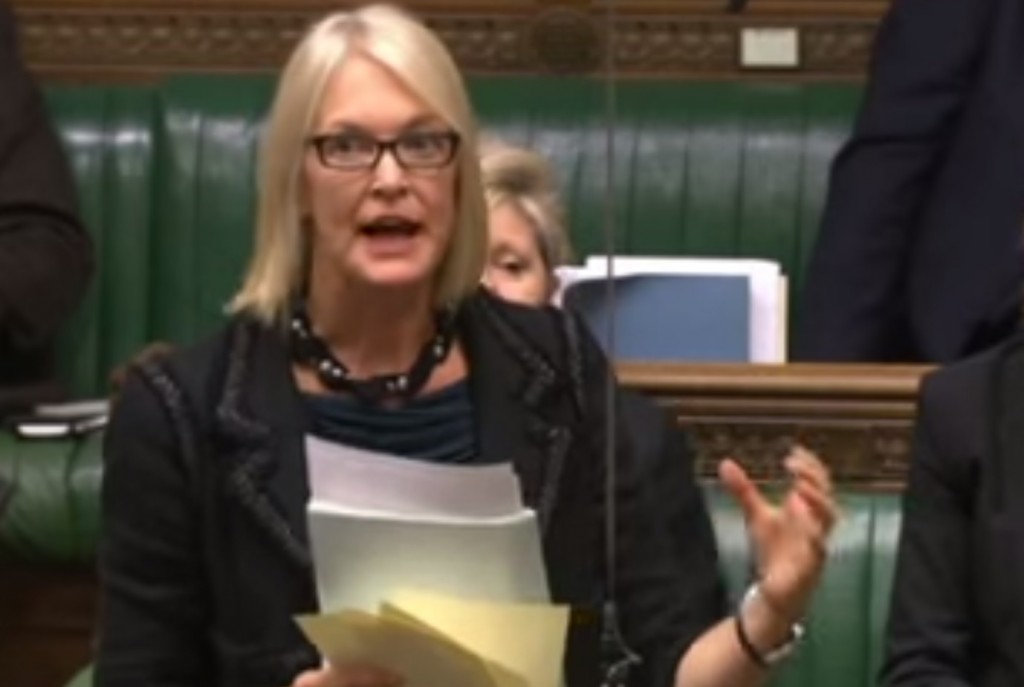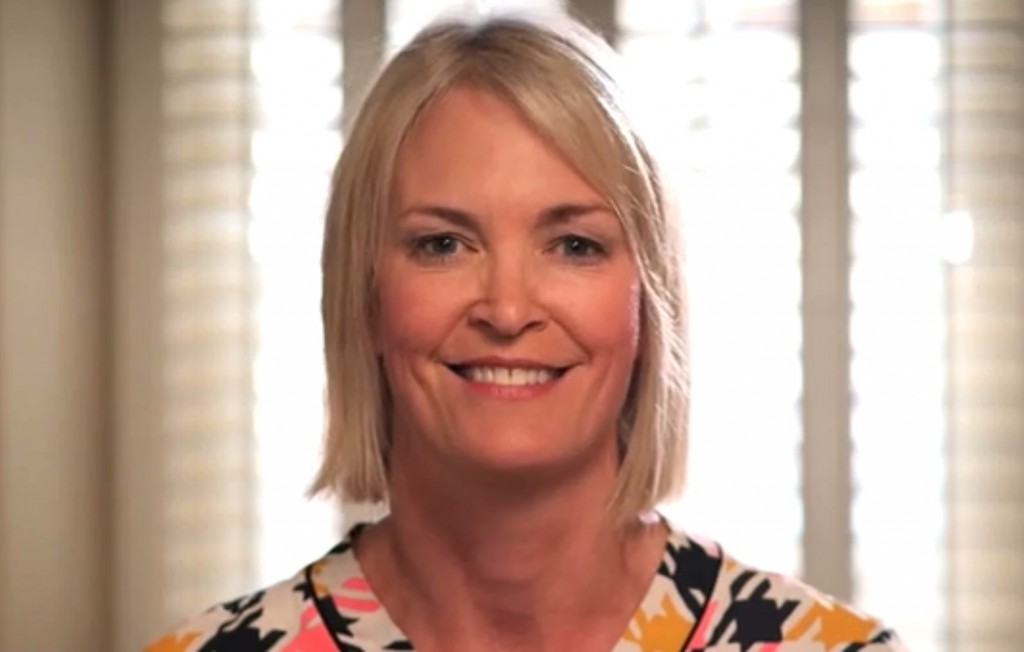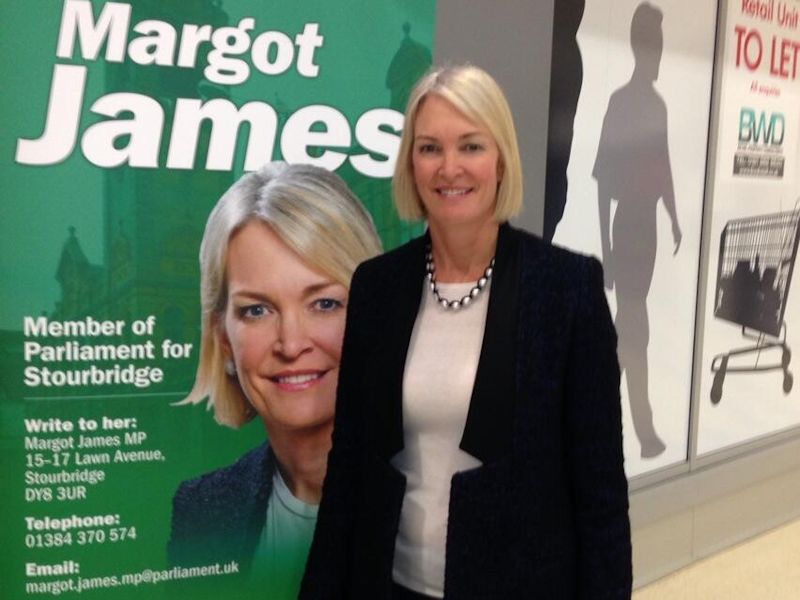Out in parliament: Attitude speaks to Conservative MP Margot James
By Will Stroude
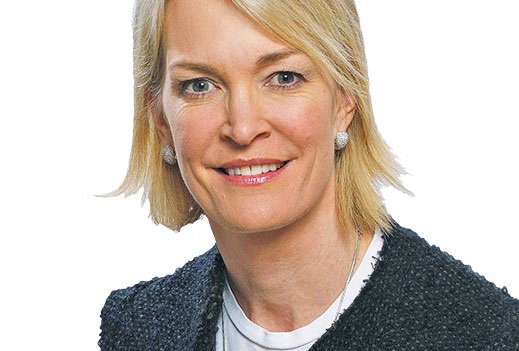
As the four-week countdown to the general election begins, Attitude speaks to some Britain’s most prominent LGBT MPs about being out and proud in parliament in 2015.
Margot James served as Conservative MP for Stourbridge between 2010 and 2015, is standing for re-election next month, and was the party’s first – and only – openly lesbian MP. 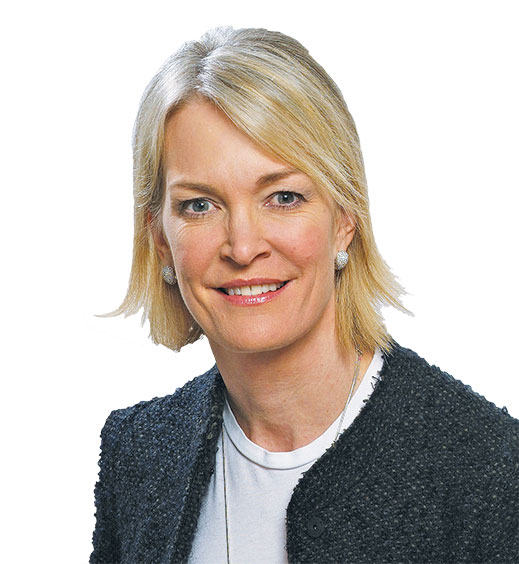
If you’re looking for a frank example of how the Conservative Party has changed in 2015, look no further than Margot James – just leave accusations of tokenism at the door.
“I wouldn’t put LGBT issues aside if I felt there was a marked difference between the parties on them – that’s one thing to make clear – but I don’t think there is”, says Margot James, making the case that with introduction of equal marriage under a Tory government, the doors have well and truly opened for the LGBT people to throw their support into the blue corner at this year’s general election.
“I respect that the Labour party presided over groundbreaking reform that the Conservative Party took far too long to embrace, and I quite accept that – but I think those days have passed, and the parties are on a level setting in terms of equality matters. I think that other issues should probably be at play when people make up their minds on how to vote.”
For the straight-talking 57-year-old – who splits her time between her West Midlands constituency and South Kensington, where she lives with her partner – that transformation has been a long time coming, and while she concedes that the party is “changing still” when it comes to gay issues, she has first-hand experience of how far attitudes have come since she first discovered a passion for politics in her teenage years.
As one of the quiet stars of the equal marriage debate this parliament, the former party Vice-Chairman urged her colleagues not to “flinch” from further progress, insisting they owed it to a younger generation of gay people that “didn’t have to grow up in the environment that some of had to grow up in.”
Born in Coventry to a self-made businessman, Margot was first drawn to the Tories as a teenager after seeing the fruits of her father’s labour “very nearly wrecked” by trade unionism in the early ‘70s. But despite working in the party’s press office and as a parliamentary researcher during her formative years, she “drifted away” from politics soon after: “Largely”, she says, “because of the issues around being gay and the difficulty – or the impossibility – in those days if you weren’t prepared to live a double life.”
Margot addresses the Commons during a reading of the Marriage (Same Sex Couples) Act, February 2013.
She cites a five-year relationship with her first girlfriend at university – an “amazing character” but “very out… uncompromising, lesbian feminist” – as the reason she wasn’t keen on pursuing public political office earlier.
“I couldn’t conceive of a life where I was one thing to a whole group of people and another thing to another”, she explains.
The years after saw her found a hugely successful healthcare consultancy group, but after selling the business in the late 90s she decided to “have another go”, recalling how the “climate had changed” towards LGBT figures in public office and that the Conservative party – which she officially rejoined in 2004 – was more “welcoming of people from a very diverse range of backgrounds” than ever before.
James was eventually elected as MP for Stourbridge in 2010, and is odds on to hold onto the seat next month. I put it to her that the party still has some way to go, however.
After all, a majority of Tory MPs voted against equal marriage, and it was Margot herself who was forced to talk down members of her own party who referred to the bill as “Orwellian” and “Alice in Wonderland territory”, while calmly but firmly reminding a significant proportion of her fellow back benchers that a socially conservative agenda is not the election-winning tactic of yesteryear.
She dismisses the opposition she encountered as a “generation thing”, saying that those views come from the same Cornerstone group of white, middle-class men who are “all well into their 60s” and have “probably been in parliament 25 years.”
“The world has changed around them they haven’t quite kept up,” she says, adding that the more encouraging example of change is the people who voted for it.
“People like Iain Duncan Smith [and] Caroline Spelman, who chairs the Conservative Christian Fellowship. You know, people like this would have never voted for it five, ten years ago, and they have really genuinely changed their minds.”
“The Conservative Party has changed – it’s changing still – and there aren’t issues for gay people in the Conservative party.”
Painted in the media as the darling of Cameron’s Tory modernisation programme when she first stood for election in Holborn and St. Pancras in 2005, Margot admits she was affected by accusations that her rapid rise within the party was down to box-ticking rather than ability.
When the Tories’ ‘faith, flag and family’-espousing Cornerstone group began publicly slamming Cameron’s ‘A-list’ – designed to encourage greater diversity among candidates and cabinet ministers – it was Margot’s face that ran alongside the headlines, “as if to say”, she recalls with tangible indignation, “‘people like this – what on earth are they doing standing for parliament on a Conservative ticket, how ridiculous’”.
She reacted in typically unflappable fashion however.
“I was incensed by that, so I went to all the Conservative MPs at the time who were behind this movement, I laid out my CV and said ‘I think you’ll agree I’m eminently qualified to stand for parliament as a Conservative candidate’ – and they all wrote very nicely back agreeing with me.”
Ten years on from her initial selection and despite the plethora of gay men now walking the corridors of Westminster though, why are there still just two openly lesbian MPs in parliament? I venture that that the reason is still a problem with getting women into the chamber in the first place. She agrees.
“I think in terms of parliamentary representation we’re at about 22%, and it’s a big issue that still needs a lot of pro-active tackling. I mean, at least we’ve got the leader of the Scottish parliament [Ruth Davidson], who’s also a lesbian, and while I don’t know how many candidates we’ve got who are gay women I do happen to know one who I’m mentoring who’s fighting a marginal seat.
“I’m always incredibly encouraging to any gay women who come to me for counselling about whether to stand: I’m very keen to get more gay women into parliament, but they have to come forward. This is the issue; and the issue with women as well.”
Margot is odds-on to hold on to her seat of Stourbridge in next month’s election.
Of course, the list of barriers women in politics face is lengthy and complex, but Margot believes a “relentless explosion in online abuse” directed at female politicians and activists has also played a part: One only needs to look at the onslaught of death and rape threats directed at Labour MP Stella Creasy last year after she deigned to support a campaign to put Jane Austen on the £10 note.
She adds that with politics held in such low regard these days, politicians are “constantly judged by ridiculous criteria” when it comes to public interpretation of their intentions.
“I never used to get that crap in business. I think there’s a lot of that, and the whole negativity about politics”, she concedes. “I find a lot of my colleagues sadly are intimidated by it; quite cowed by it. I’m not really, because politics is my second career: I’m also not dependant on it for my livelihood. But it’s a shame really. I think whatever pendulum we’re on it’s swung far too far. And that puts people off, men as well as women.”
The battle for domestic legal equality may have been won with the introduction of equal marriage, but she’s clear that politicians of all colours should be “campaigning to change the culture” in Britain – particularly in schools – and that there should a renewed focus on LGBT human rights around the world after the election.
James says it was a “great shame” to have lost William Hague as Foreign Secretary last summer after he made a righteous effort to promote that agenda, insisting that under his leadership foreign ministers were “very vigilant” about raising the treatment of gay people in countries like Uganda and Nigeria regularly with their counterparts.
“I think that’s been slightly lost,” she adds. “But to be fair, since William stepped down from the foreign office the international situation with regards to Russia, Ukraine and ISIL has deteriorated massively.”
When it comes to where to place your ‘X’ on the ballot come May 6th though, Margot is firm.
“It would be a complete disaster actually, if people let Labour back into government. They’re not ready for government. Basically, what needs to happen is for them to lose the next election, and much like the Conservative Party in the mid-noughties, they need a new generation and new leadership. They need to leave Miliband and Brown behind and start again.
“Then, who knows, we might get tired and they’ll be the party of the future again. That’s how it goes.”

